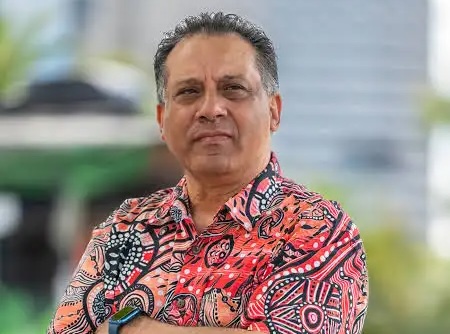By Meta Cohen
Feral Queer Camp is a program developed by theatre makers/academics Alyson Campbell (University of Melbourne) and Stephen Farrier (University of London) that runs alongside queer performance festivals such as Outburst (Belfast, 2018/19) and Midsumma (Melbourne, 2020/21). Geared in particular towards those ‘who have not (yet) had access to, or have been let down by, or have chosen not to enter into, Higher Education’, Feral Queer Camp sees a cohort of ‘campers’ explore the festival and gather to discuss works. A key aim is to build capacity for how we talk about queer performance and articulate the ways it works. One major development we have noticed is that as we, the Feral Queer Campers, travel through a queer arts festival together, our conversations about work accumulate layers of analysis as we think collectively. In this short blog post, I want to provide an example of how this worked at Outburst Festival in 2019, in my capacity as Feral Camper, and now ‘Tawny Owl’ (or FQC coordinator).
Queer work as ripple: Abomination, Outburst Festival, Belfast, 2019.
In 2019 I participated in Feral Queer Camp as part of Belfast’s Outburst Festival. The first work I saw as part of this festival was Abomination, a piece billed as a new queer opera. This opera was the moment where many Feral Campers met for the first time and, in our sessions, it was the first work we discussed. Abomination became our frame of reference – a point of comparison – and part of our common vocabulary. Building from the first conversation, we developed a collective understanding of it that constantly evolved and expanded as we worked and reworked our way through the group’s diverse points of view. We started to understand it in reference firstly to our initial, immediate or ‘gut’ reactions, then in its artistic construction, later in comparison to other works we were seeing, and finally in its wider political and social impact. Insights on the work emerged again and again, rippling throughout the ten days of Belfast Feral Queer Camp. As our understanding of the work, and our trust in each other, grew we found the conversation could safely hold the complexity of some campers finding the work problematic and – crucially – feeling comfortable expressing this. There is an initial reticence to critique queer work - we are so desperate to see it! But one of the aims of these camps is to work towards creative and generous discussion, including the capacity to say where things fall short but, importantly, to work out why.
Thus, as our analysis developed, the critique of Abomination was partly due to the operatic form, which some felt was not doing enough queerly to avoid isolating the very audience it was ostensibly ‘for’. Mostly, however, the discussion (responding to the decision to use only verbatim text) raised questions about replicating versus critiquing violence and the politics of giving homophobic hate speech ‘voice’ despite parodic intentions.
Two main strands emerged in our discussions. These were:
1. Is it really queer and, if so, what makes it queer?; and
2. Who is it for? What is this work saying or evoking about queerness? And, crucially, (how) is it causing harm, and to whom?
This led to the question of:
What’s missing? (from the performance, the festival, queer work in general…)
For me, Feral Queer Camp raised awareness of the power of directing this question to the very people ‘qualified’ by their embodied queer knowledges to consider it. One of the truly destabilising powers of Alyson's and Steve’s 'feral pedagogies', which look at the ways in which we talk and teach about queer performance, is that they do not accept the institution as the sole arbiter of ‘legitimate’ knowledge, but rather see it as a dialogue (and blurring) between ‘inside’ and ‘outside’. It’s that same recognition that queer theory is informed by non-normative, embodied knowledges of being in the world.

This process provided the opportunity to imagine the future: a group of queer people, through this process of identifying and analysing what was programmed, were noticing what was missing and developing a sense of their own competence in addressing this lack. On top of this, our discussions equipped us with the resources and knowledge to potentially make changes in the future.
By layering other works on top of this one and talking most days we became a sort of living archive, a community where eventually people felt confident in their ability to grapple with complex discussions and ideas. While this does not require recourse to theory, it’s notable that there was resistance to anything ‘overly academic’ in the first session. In contrast, in the last, the group returned to this first work, thinking critically about its intersections with place, queerphobia, feminism and racism.
For me, Feral Queer Camp built a unique sense of kinship around the experience of travelling through a festival as a group and watching queer performance. I found myself continually in awe of the deep communal thinking in the room. Peer learning is the foundation of these camps, and I think there’s a link here between queer performance, discourse and community: it prompted me to think (or hope) that perhaps queer performance can be fuelled by the queer people talking about it. And that makes me very excited indeed.
Feral Queer Camp ran at the Midsumma Festival 2021. For further information, please see https://feralqueercamp.com. Images courtesy of JulieMc McNamara.





.png)